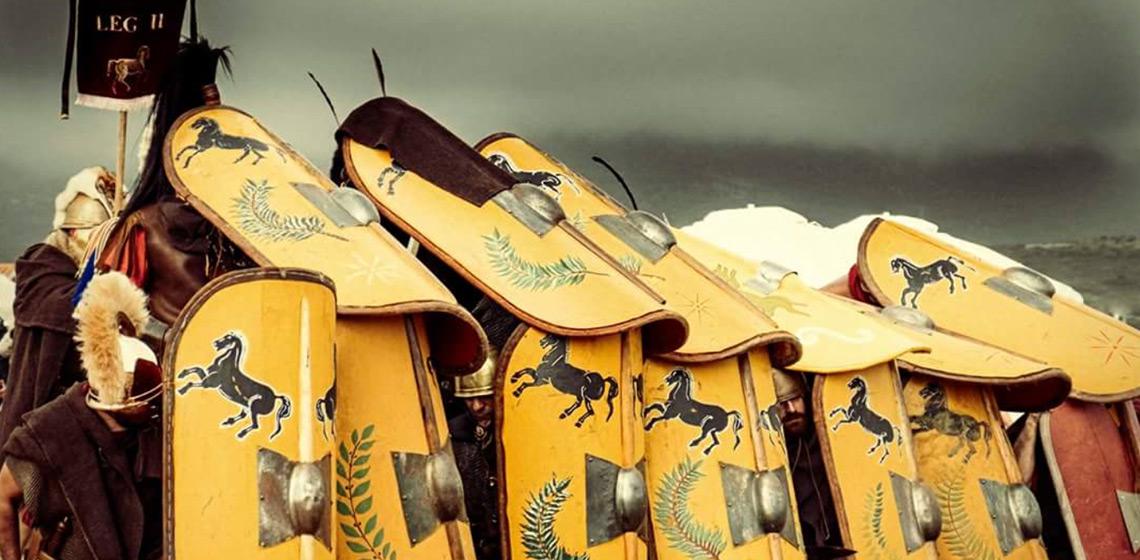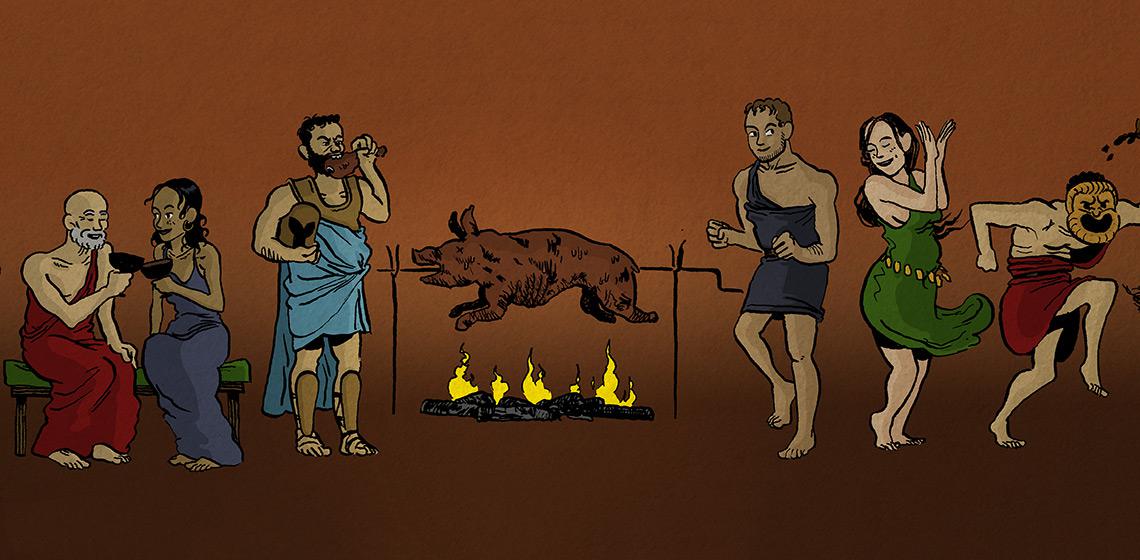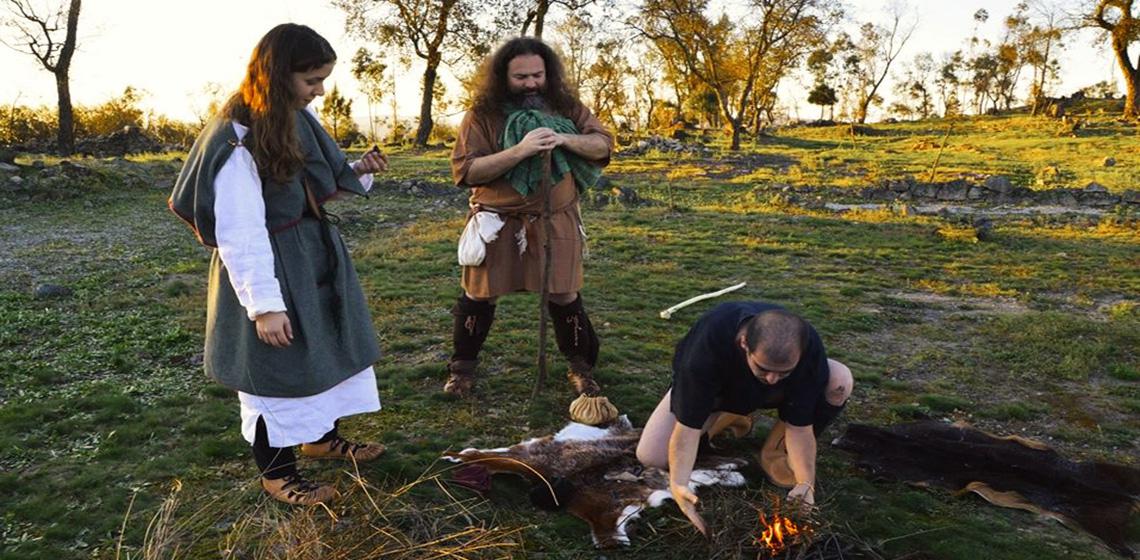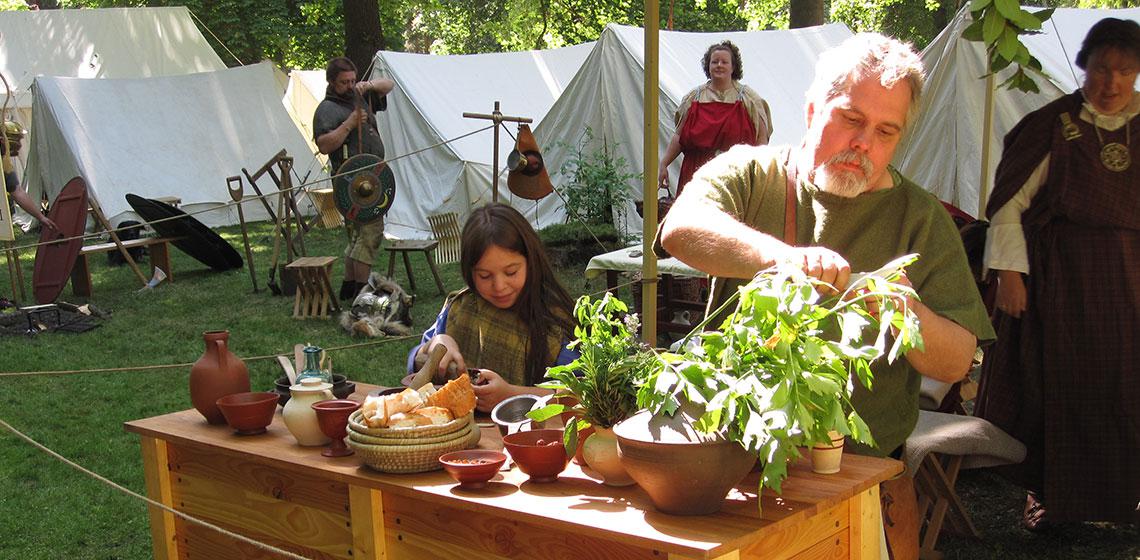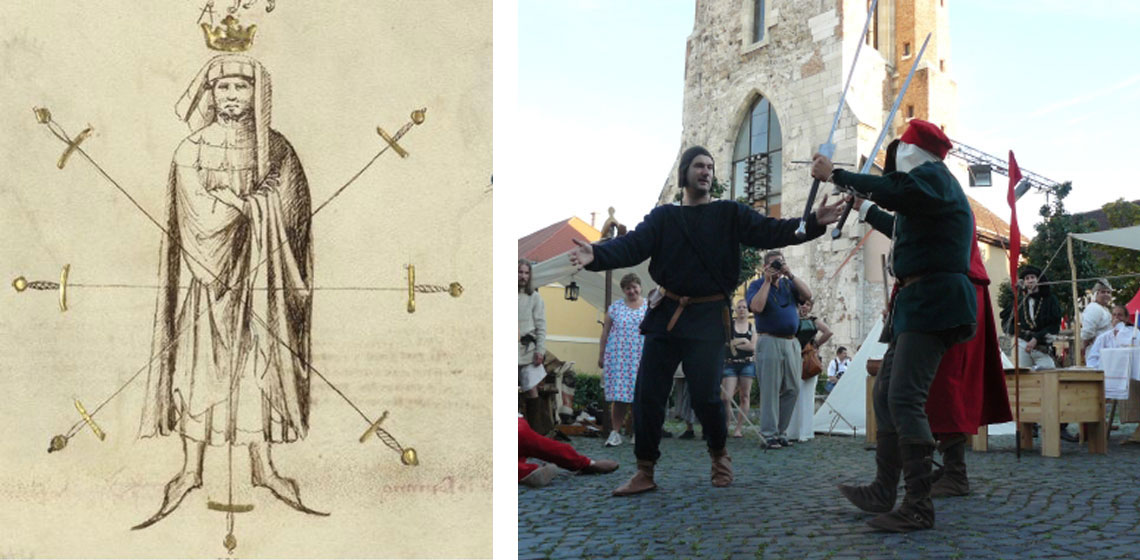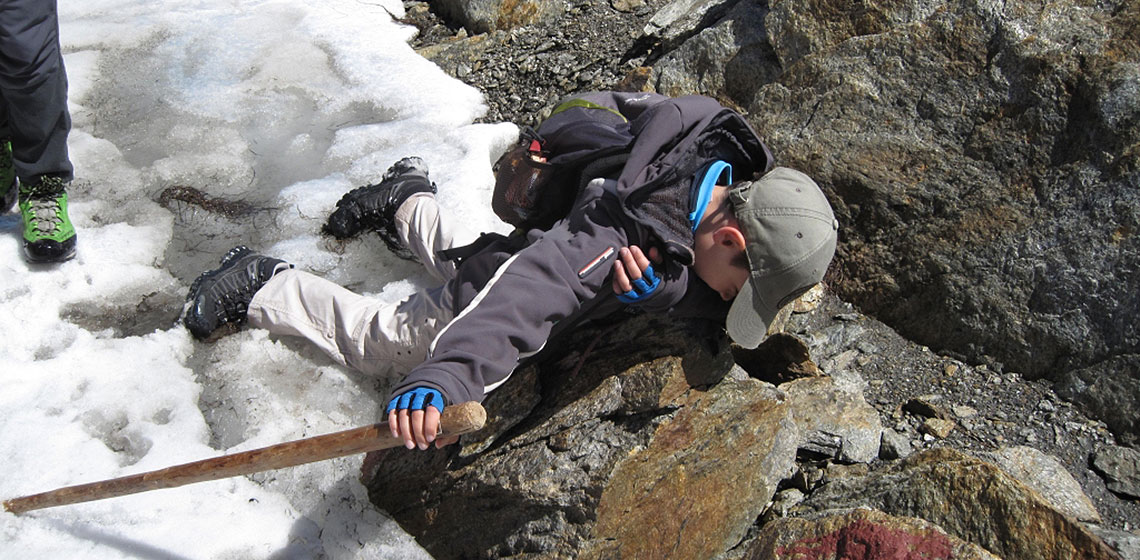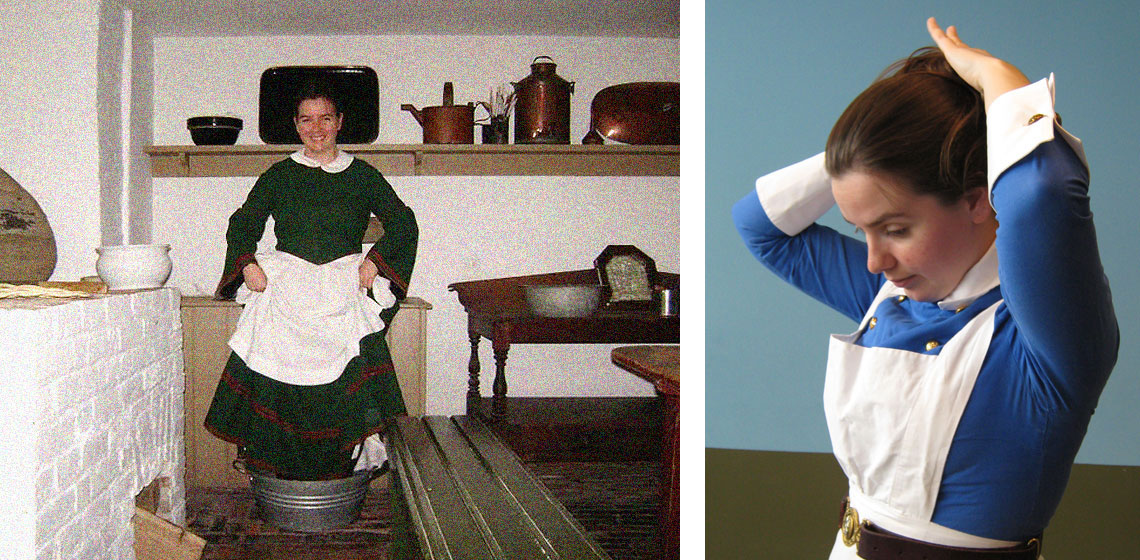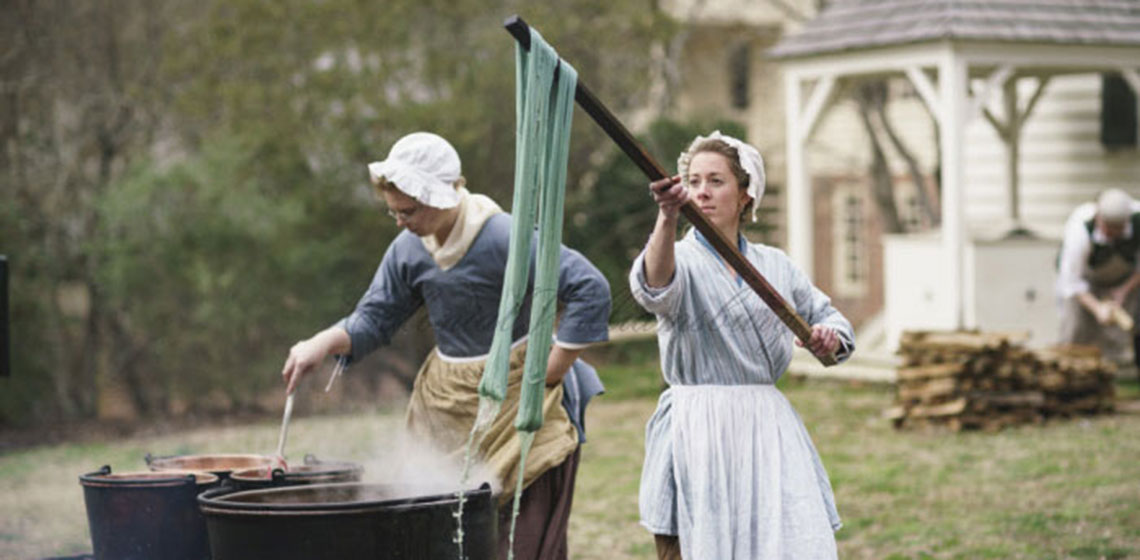Featured in the EXARC Journal
Interpretation
Archaeological Live Interpretations, Docu-Soaps and Themed Walks: Similarities and Differences
Introduction
For many years, the public has become increasingly aware of historical and archaeological topics, a phenomenon to which large-scale and well-attended exhibitions, so-called ‘medievalmarkets’, the continual success of historical TV-documentaries, and a booming market in specialized books and magazines may attest. Living history formats on television or historical docu-soaps also attract millions of viewers (see, for example, Schwarzwaldhaus 1902, SWR 2002; Steinzeit– DasExperiment, SWR 2007).
Interpreting the Interpreter: is Live Historical Interpretation Theatre at National Museums and Historic Sites Theatre?
Presenting the Discussion
The majority of the people Scott Magelssen interviewed were museum curators and historical interpreters, and their answers were broken up into three main categories:
1. No (mainly because there is no script), 2. Yes, it is a form of theatre, 3. Of course it is theatre. (Magelssen 106-119)


